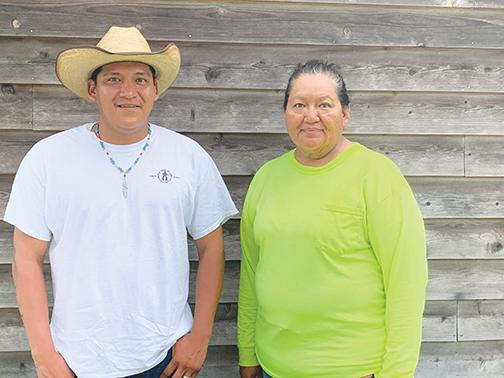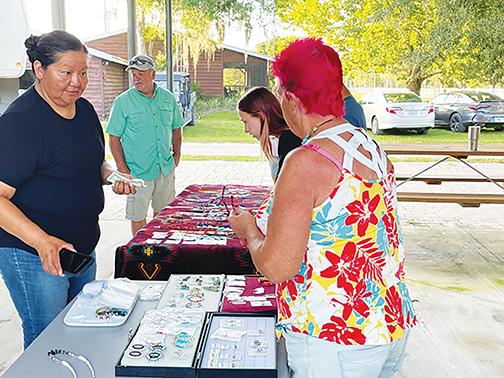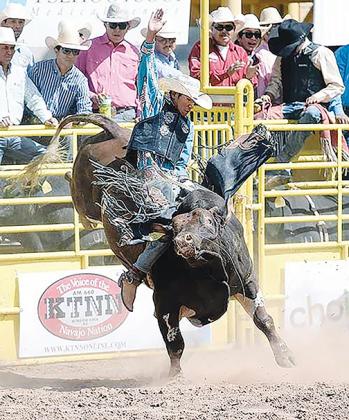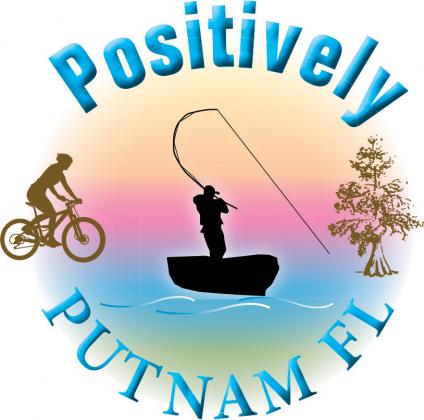Navajo mother-and-son duo spending time building in Putnam
Part of Seminole Electric’s construction for a new combined-cycle facility is being assisted by two ironworkers from Arizona with a strong sense of heritage.
Lee Ann Goatson, an ironworker and foreman, and her son, ironworker U’Ryan Goatson, belong to the Navajo Tribe. Their work for Seminole’s contractor, Kiewit, consists of constructing the exterior of the structure, including beams, pipes and handrails.
The work on the combined-cycle facility in Palatka is part of a $727 million project converting one of Seminole’s coal-fired units into a natural gas-fired plant.
The Goatsons have been in Putnam County for about eight months, spending the past three months in Hollister. While both would trade the West’s dry heat for Florida’s humidity, they appreciated peace and quiet.
“I like being out here,” U’Ryan Goatson said.
The Navajo Tribe is the second-largest in the nation, having more than 300,000 members, with most living in Arizona, New Mexico, Colorado and Utah.
Per Navajo tradition, Lee Ann Goatson does a prayer with cornmeal at dawn before the sun comes up. She said it’s an offering to become one with the land.
“It’s just kind of a thing about appreciating the land and trying to be humble,” Lee Ann Goatson said. “Our word, ya’at’eeh, means hello, and in Navajo, it means holy and being where you’re at right now, like your presence.”
Her son wears a necklace with turquoise and red coral. Lee Ann Goatson also sells jewelry on Saturdays.
Navajo is Lee Ann Goatson’s first language, she said. With dialects and translations, the meanings of words can be tricky, she said. She grew up on a reservation and has been doing beadwork and weaving since an early age.
“The culture is really strong in our family,” she said. “We’re traditional.”
Horses are also seen as therapy in Navajo culture and they symbolize strength and respect. U’Ryan Goatson remembered being placed on a horse at a very young age. U’Ryan Goatson later competed in bull riding events across the Southern U.S. before injuries led him to welding school.
“On my uncle’s ranch, they catch wild horses and break them,” U’Ryan Goatson said. “I’ve been around rodeo since I was small. I tried riding a junior bull and fell in love with the sport.”
Trails End Outdoors owner Keith Valentine said it is great to have the family at the property. U’Ryan Goatson has assisted with some ranch duties, Valentine said.
“It just all worked out really neat,” Valentine said. “(U’Ryan Goatson) knows what he’s doing with horses.”
Navajo traditions have been passed down for centuries, which makes things complex for younger generations. U’Ryan Goatson said he has family members who don’t speak English, so fluent Navajo speakers have to translate for him.
“The whole culture and becoming a man, they taught us to provide for our families,” he said. “You have to work and keep working to provide and put food on the table. It’s being able to be proud to come back home and to see your family happy. That makes you happy.”
Copyright 2021 by Palatka Daily News - all rights reserved.




